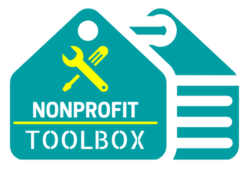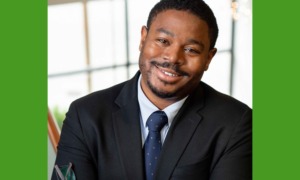You are stretched thin and considering hiring a consultant or contractor. You are looking for someone who can provide an outside perspective and guidance. Congratulations! This is a big step and can create real success for your nonprofit. It could also lead to disaster with nothing but hard lessons on the other side, especially if you don’t know what to look for when hiring a consultant.
As a fundraising consultant and business owner, my firm Fordable Fundraising works with a variety of charities providing education, consulting and grant writing. As I have moved from solopreneur to having a team, this experience has helped me understand more clearly what is needed to be a consultant and work with consultants. I hope by sharing my experience, it can help you avoid any setbacks or concerns.
A couple of years ago, I developed an online course and was looking for support with digital marketing. I knew it was an investment and I did my homework. I sought references from trusted colleagues and evaluated multiple groups.
The group I selected was neither the least nor most expensive and came recommended by a colleague. The four-figure monthly price tag was as much or more than my small salary at the time, but I was committed to the investment. The six-month service agreement read like a dream and included soup-to-nuts marketing from strategy to execution. At the time, I thought this flexibility was great. I needed an expert who could assess where my company was and help to develop the infrastructure needed to support long-term success.
Unfortunately, what happened next led me to seek legal counsel.
The first few weeks of the engagement started out strong. The owner and I discussed goals and she even took the time to attend our team retreat. It was never explained to me who I would be working with, and from initial appearance, it seemed the owner would be supporting all the work. There was a brief introduction to one or two people from her team, but it was never explained what their roles were or how they would support the project.
She shared we would have a 30-minute call twice a month. I thought this would be fine, given the current level of effort.
A week later, while visiting with a mutual colleague, I learned the owner of the marketing firm had recently signed agreements with five additional clients. I knew at that moment my entire project was at risk of failure if the owner thought she could perform the work for all these new clients. From that point forward, every conversation I had with the owner was scattered. Seeing she was overwhelmed, I tried giving her an out and asked if she would like to stage the project differently. She refused.
Soon, the majority of all work and communication from the owner ceased with the exception of the 30-minute meetings held twice a month. When the 30-minute meetings turned into hour-long meetings, the owner complained the meetings were too long. When I complained about the work not being done, instead of helping to troubleshoot the issues and offer customer service, the owner blamed me, claiming I just couldn’t be satisfied. My complaints grew louder and louder and I felt helpless. The situation was exhausting, and in the end, it left me nothing to support the marketing of my online course, an empty bank account, and some powerful lessons in working with consultants.
Wisdom is learning from others’ mistakes. To help you on your quest to hire a consultant, here are the five critical “must haves” you need to ensure a return on your investment.

Courtesy of Janeal Ford
Janeal Ford is the president and CEO of Fordable Fundraising.
1. Ask them about their experience.
While there is nothing inherently wrong with being a brand new consultant (we all have to start somewhere!), if this person is to be trusted to provide the best guidance, you’re going to want someone who is seasoned. Steve Jobs said it best: “It doesn’t make sense to hire smart people then tell them what to do; we hire smart people so they can tell us what to do.” You want someone who knows what it is like to be in your shoes and experience solving real problems for an organization. A seasoned professional will have navigated through challenges. Ask questions about the scope of their experience, if they are familiar with your services and if they have worked in a nonprofit before. There are complexities and nuances in the nonprofit world and you want the person you hire to know about them and help guide you to the next level.
2. Ask them about their client-to-consultant ratio and who you will work with.
To avoid being “ghosted,” as I was, take a lesson from my mistake. Hiring an external resource like a consultant or contractor, it is safe to say they are going to be working with other clients. By asking the current client-to-consultant ratio, it can give you a clue of how responsive and available they can be for the assignments in your organization. As you begin to have conversations with a potential new contractor or consultant, it is common to deal with the most influential and charismatic person (often the owner) during the sales process. This doesn’t mean they will be delivering services. I have heard many complaints from leaders who have felt like they are victims of a bait-and-switch maneuver — the entire sales conversation is solely with the owner and once the contract is signed, they never see that person again and are handed over to strangers. Confirm who you will be working with as part of the engagement.
3. Ask them how they manage communication, meetings and task management.
While the consultant you hire may be an expert in the subject matter, it doesn’t mean they are an expert in communicating or talking about how the work will be done. I hired a communications firm, and they really stunk at communications! Be certain the consultant you hire is committed to regular communication, whether that be emails, calls, video calls or in-person meetings. Insist on the use of meeting agendas to guide the work. Agendas are a tool to help ensure the work is moving forward. Ask your prospective consultant how they track action items and task completion between calls and meetings. Getting these answers will save you a lot of time, heartache and money.
4. Ask them how responsive you need to be.
This is really important. As a consultant, I have worked with groups who really wanted our services but were not in a place to show up for the engagement. Work gets dragged out for weeks and months and they just never showed up for what needed to be done. I and my team have worked hard to develop a process and procedures for clarifying expectations and onboarding new clients. Asking the consultant how they will onboard you and how much time is expected from you and your team will ensure a successful engagement.
5. Ask for specificity and clarity in the scope of work agreement.
The digital marketing firm I hired offered a scope of work that seemed to be broad enough to offer the sun, moon and stars. What I ended up with was mediocrity and extremely poor customer service. As you review the proposal and scope of work, make certain the information contained within checks all the boxes on the deliverables or outcomes you are looking to achieve. If it is vague or general, ask questions and then insist on an edit to ensure you know precisely the services you are purchasing. Finally, if the services or amount is substantial, consider having legal counsel review it before signing.
You can’t do it all, and hiring an expert with an outside perspective can accelerate your charity’s mission impact. There are many reputable consultants and freelancers ready and willing to help you on your journey. Follow my suggestions as you discern your options, they can help you save time, and money and improve your odds of success.
Janeal Ford is the president and CEO of Fordable Fundraising and has served in the nonprofit sector for more than 20 years. As a fundraising professional, board member, community volunteer and consultant, she has helped charities raise millions of dollars. Ford received a Bachelor of Science in Sociology and a Master of Public Administration from the University of Utah and is a Certified Fund-Raising Executive.































